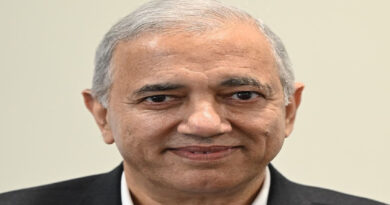Google postpones in-app commission payment in India to March 2022
The tech giant Google has rescheduled the timeline for apps on alternative payment options to comply with its Google play billing system to March 31, 2022, it announced via a blog post on Monday. Google has decided to postpone the imposition of a 30% commission on in-app purchases of digital services from its Play Store in India to March 2022, in view of increasing protests by local developers.
Recently, a number of startups and developers in India have come together to determine ways to challenge Google, including by lodging complaints with the government and courts. There is unrest among them about the 30% commission fee and they are unhappy about several other Play Store policies hurting their business.
Here’s what Google India said:
Listening closely to developer and user feedback is important to how we continue to make Android better with reach update, and improve how the Play Store functions. Since we published a clarification to our Play Payments policy, we have noticed some further questions from the community in India. Below we wanted to solve and clearly respond to the topics we’ve heard.
First of all, we want to restate that we are highly committed to the success of the Indian ecosystem – we do not succeed unless our partners succeed. Being conscious of local demands and concerns, we’ve taken the following necessary steps:
- We are going to conduct listening sessions with major Indian startups to understand their concerns more deeply;
- We will be setting up Policy Workshops to help clear any additional questions about our Play Store policies;
- And we’re also extending the time for developers in India to integrate with the Play billing system, to ensure they have enough time to implement the UPI for subscription payment option that will be made available on Google Play — for all apps that are yet to launch, or that currently use an alternative payment system, we set a timeline of 31st March 2022.
Besides this, we’d want to provide more clarity on the three prevailing topics we’ve heard from the Indian community:
- Whether this is a new policy and who it applies to;
- The forms of payment the Google Play billing system supports;
- Supporting choice of app stores on Android.
Recently we explained the language in our Google Play Payments Policy in response to developer feedback that the policy language could be more apparent regarding which kind of transactions need the use of Google Play’s billing system. Our payments policy is not new – we have a global business model and policy, and we have always asked developers who list their apps on Play to use Google Play’s billing system if they provide in-app purchases of digital goods. In fact, more than 97% of developers who’ve listed their apps on Google Play already comply with the policy.
To make it clear, the policy is applicable only if a developer asks users for payment to download their app or if they sell in-app digital products, which constitutes less than 3% of all developers with apps on Google Play. You can read other details on our Payments Policy page and we’ve also provided a developer FAQ that answers many of the important developer questions.
There has also been some misunderstanding that Google Play billing is itself a form of payment. Google Play billing is a billing system that carries several ways for consumers to pay – today Play’s billing supports more than 290 methods of payment worldwide. In the last few several years, we have implemented more local methods of payment in India including credit and debit cards, net banking, gift cards, carrier billing, and all supported UPI apps. And we will continue to interact with developers and consumers on putting additional forms of payments.
Know that Google Play’s billing option isn’t just about providing multiple forms of payment – it makes sure that Google Play users have a nice purchasing experience. It shows clear disclosures about price, what is being purchased, and key subscription details like when a fee will be incurred and whether a payment is recurring. It also features post-purchase experiences including reminders about when free trials end, and is an integral platform for managing your subscription in Google Play including refunds and cancellations.
In a nutshell, our billing system offers an easy, safe path for consumers to pay – and we have seen that this simplicity and safety is crucial to increasing developers’ businesses inside Google Play.
Ultimately, we have always emphasized that developers should have a choice in how they offer their apps, and that stores should compete for consumers’ and developers’ business. Android is an open source and choice is the main trait of the operating system. It’s the reason why users have always been able to download apps from multiple app stores and why they have always had control over which apps they utilize, be it their messaging app, keyboard, phone dialer, microphone, or app store. Moreover, most Android devices come with at least two app stores preloaded, and users are able to install additional app stores as well.
We think it very important to understand the concerns across the ecosystem, and these listening sessions over the next several weeks will aid us to discover strong solutions that work for everyone. When a developer achieves success on Play Store, we see it as our biggest win. At Google, we have always had a long and strong commitment to India, and working with the startups and developers has given us a more valuable understanding of how technology can be more helpful. Therefore, we remain excited about engaging with the community, to listen and discover the right ways to help the Indian ecosystem grow and thrive.


